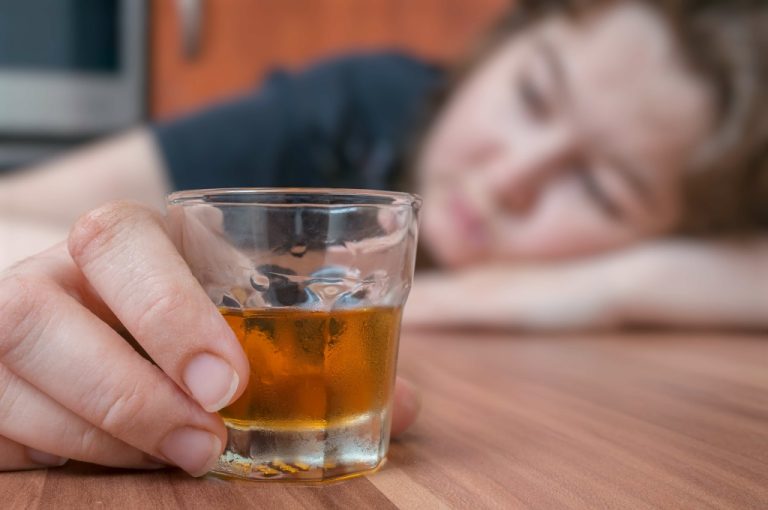Family members can also be involved in support groups to learn how to better support their loved ones. Certain medications can reduce the pleasure of alcohol or drugs, reduce cravings, and also help withdrawal symptoms. There are 2 ways to get concurrent treatment for alcohol or substance use and PTSD. Some people choose to do 2 different therapies—one for PTSD and one for substance use—at the same time, usually by different therapists.
#3. Get a Buddy Statement for PTSD with AUD
Eight Halfway house Danish veterans participated in a 10-week nature-based therapy. Qualitative interviews were conducted and analysed using the interpretative phenomenological method. The results indicated that the veterans have achieved tools to use in stressful situations and experienced an improvement in their post-traumatic stress disorder symptoms. Women may practice behaviors that put them at high risk for contracting sexually transmitted diseases (STDs) and other infectious diseases (Greenfield 1996). Testing for HIV/AIDS, hepatitis, and tuberculosis is important; however, it is as essential to have adequate support services to help women process test results in early recovery. Anticipation of the test results is stressful and may place the client at risk for relapse.
Why Veterans Deserve Specialized Alcohol Treatment Support

The VA generally can’t deny your PTSD claim solely because of alcohol abuse. However, if the VA determines that your alcohol use is “willful misconduct,” meaning it was a result of intentional and irresponsible behavior, it could affect the outcome of your claim. If you can demonstrate that your alcohol use is a symptom of your PTSD or a way to cope with it, the VA is more likely to consider it as part of your overall condition rather than as a reason to deny your claim. Being honest and providing thorough documentation during your evaluation can help ensure that your alcohol use is understood in the context of your PTSD.
Second, although treatments for PTSD and SUD have been disseminated systemwide within the VA, there is a dearth of literature about the effectiveness of these treatments for those in this population who have both conditions. Among military and veteran populations, the risk for both PTSD and alcohol misuse may vary because of differences in demographic factors, aspects of military culture, and trauma or stress exposure. Relatively little research has addressed risk factors for co-occurring PTSD and AUD. Therefore, we do not know the extent that risk factors may increase the risk for one disorder or both, or whether these risk factors may have additive or interactive effects.
Health Education
The idea of accommodating PTSD as a barrier to recovery is similar to the theory that family members might enable alcohol dependence by acting in ways that cause the addiction to continue. That idea gained popularity in the 1980s alongside “tough love” theories on treating addiction, which pathologized allowing the addiction (and oftentimes, subsequent domestic abuse) to happen. Feminist critiques derided the theory as failing to recognize the complexity of family dynamics and caring responsibilities in the home. Leaving a relationship or asserting firm boundaries are not always feasible or safe – in many cases, risk of harm is highest when a controlling partner loses some of their power. It is beyond the scope of this chapter to provide specific assessment guidelines or tools for other disorders outside of substance-related disorders.
Treatment should be given for both PTSD and SUD to lead to successful recovery. The good news is that treatment works if you have PTSD and SUD happening at the same time (co-occurring). TBIs can cause mood disorders, chronic pain, insomnia, personality changes, and cognitive impairments. A 2024 study of 52,700 post-9/11 veterans found that those with a confirmed mild TBI had a significantly heightened risk of substance use and alcohol use disorder and overdose compared to those without a TBI. For example, although some people use alcohol to help them sleep, in reality, alcohol can make sleep less restful.

The Difference Between Screening and Assessment
When submitting a Buddy Statement, ensure it’s detailed, specific, and directly relates to your PTSD and AUD. Because certain drugs as well as withdrawal symptoms can mimic symptoms of mental disorders, the continual reassessment of mental illness symptoms https://artibhajanchalisa.com/contactus/index.php/2024/07/10/75-best-sobriety-quotes-and-sayings-of-all-time/ is essential to ensure accurate diagnosis and treatment planning. TIP 42 Substance Abuse Treatment for Persons With Co-Occurring Disorders (CSAT 2005e) contains information on screening and treatment of persons with co-occurring substance use and mental disorders. If a woman is obviously severely intoxicated, she needs to be treated with empathy and firmness, and provision needs to be made for her physical safety.
If you don’t have VA health care benefits, you may still be able to get care. At Addiction Helpline America, we specialize in connecting people to programs that fit both their clinical and financial needs. Our confidential guidance can help you find affordable options you may not have known were available. Verifying a facility’s credentials is a non-negotiable step when searching for treatment centers in Florida. Licensing and accreditation are your assurance that a center meets established standards for safety, quality, and ethical practices.
- Three participants from the group worked part time at the military barracks.
- Among a group of psychiatric patients with a variety of diagnoses, women’s BAI scores indicated higher levels of anxiety than men’s BAI scores.
- Yes, if alcoholism is determined to be secondary to a service-connected condition, such as PTSD, it may be considered in the disability claim, and the veteran could receive benefits for the combined effects.
- Coping mechanisms help veterans manage their emotions and reduce the urge to use alcohol or drugs.
- Counselors should be aware that although a client speaks English relatively well, she still may have trouble understanding assessment tools in English.
Your provider can help you get screened for substance use problems and related issues (like PTSD or depression)—and can offer treatment and support as needed. Programs like Recovery First’s veterans’ program are staffed by people who understand military culture. At Addiction Helpline America, we are familiar with VA benefits and can help you find a veteran-focused program that honors your ptsd and alcohol abuse service.
An Essential Guide to Alcoholism Treatment Options

Working to reduce accommodating behaviors in the non-PTSD affected partner is a relatively new approach, and it is still unclear what impact this has on relationships. Reducing accommodating behaviors was first written about by two of the co-authors of the 2020 MDMA couples therapy study, who also co-authored a scale to measure accommodating PTSD behavior . Similarly, a “desire to be in charge” is not a symptom of PTSD and suggests a conflation of PTSD symptoms and controlling behavior. In the study of MDMA couples therapy, PTSD symptoms decreased, yet incidents of “minor physical assault” reported by partners of people with PTSD did not significantly decrease. It is possible that the continued presence of minor physical assault suggests that there are abusive behaviors that remained unexplored within the couples. It is also unknown whether domestic abuse was a factor in any of the couples who participated in 1980s MDMA therapy, though it is statistically very likely.
Start Your Recovery Today
This can be highly distressing, as the person may lose awareness of their current surroundings and feel as though they are back in the traumatic situation. Flashbacks are triggered by reminders of the trauma and result from the brain’s difficulty processing the traumatic memory. This symptom can be particularly debilitating, as it can occur without warning and cause significant emotional distress.
An IMO provides an objective evaluation of your PTSD and AUD, often by a private psychologist or psychiatrist, and can offer a detailed analysis that supports your claim. This is particularly important if the VA’s initial assessment doesn’t fully capture the severity of your symptoms or the impact on your daily life. An IMO can strengthen your case by providing a professional, third-party perspective that validates your diagnosis and the connection between your PTSD, AUD, and military service. Addiction Helpline America simplifies the process of finding treatment centers in Florida that fit your specific needs.
